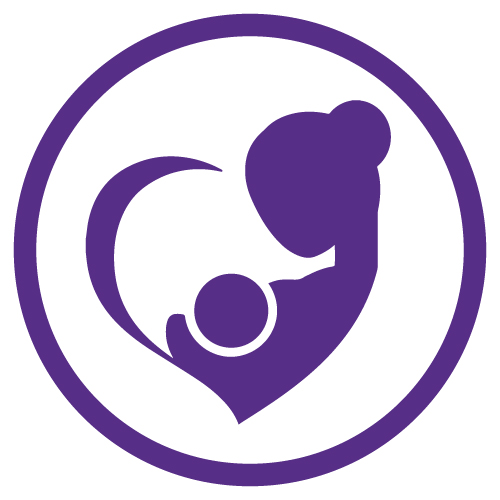
Lactation and Adversity: Addressing Challenges with Confidence Lecture Pack
Lactation professionals are well versed in supporting infant feeding in the context of clinical techniques for improving latch and positioning, increasing milk production etc. It is crucial for care providers to also know how to respond when infant feeding issues are complicated by other factors. How do we help in the face of parental trauma, gender dysphoria, past abuse, homelessness, nursing aversion or other psychosocial or physical challenges? These situations can be difficult for a client to feel safe expressing and require a higher level of clinical skill for the practitioner. This package was designed to provide an in-depth look at some of these situations so that care providers are able to approach them with more skill and confidence.
Join expert speakers such as Kimberly Moore-Salas, Nikki Lee, Anna Brauch, and Zainab Yate to hear presentations such as Supporting Dyads Facing Past Trauma and Gender Dysphoria, Palliative Care: Why and How to Provide Lactation Support During Serious Illness or Before an Anticipated Death, The Power of Storytelling: A Tool for Addressing Historical Trauma and Breastfeeding and much more!
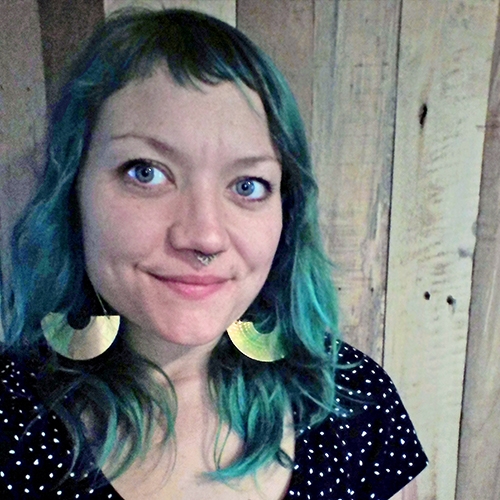

Anna is an IBCLC in Minneapolis, Minnesota. They started their work in the lactation field as a La Leche League Leader in 2015 and achieved board certification in 2018. Her three years with La Leche League included a two-year position as Equity, Diversity, and Inclusion Administrator of LLL of Minnesota and Dakotas. Anna has worked with the Twin Cities' Queer Birth Project and currently serves as IBCLC for St. Paul- Ramsey County WIC and Baby Cafe. She holds a BA in Gender, Women and Sexuality Studies from the University of Minnesota, and works to break down barriers to lactation support and create space in the intersections of gender, sexuality, anti-racism, self healing, social and environmental justice, and natural infant feeding. She has presented for the Breastfeeding and Feminism International Conference, iLactation, La Leche League, the Twin Cities Birth and Baby Expo, and the Minnesota Department of Health. Anna holds down a homestead where she raises two kids and a bunch of animals and makes art. Find her at annabrauchlactationsupport.weebly.com.
Objective 1: Define "trauma-informed" and identify how past trauma can interfere with meeting breast/chestfeeding goals.
Objective 2: Discuss ways to integrate trauma-informed care into your lactation practice when supporting parents healing from trauma and how to approach past trauma with sensitivity and competence.
Objective 3: Define gender dysphoria and identify how it can present challenges to the breast/chestfeeding relationship.
In this session, I will explore how trauma held in the body interferes with the breast/chestfeeding experience on a physiological level, including how experiences of trauma, stress, and conflict contribute to stress hormones, as well as on an emotional level, preventing the bonding between parent and child that facilitates a fulfilling breast/chestfeeding relationship. I will share techniques for supporting parents with past trauma using interdisciplinary approaches that promote self-care and healing of trauma that include talk therapy, bodywork, use of herbs and other holistic and traditional approaches such as acupuncture, potential Western medicine/pharmaceutical support, peer support, lactation professional support, and family support, and how to integrate trauma-informed care into their lactation practice. We will discuss the role of gender dysphoria during breast/chestfeeding for trans and gender non-conforming parents and delve into the available research on techniques that queer, trans and gender non-conforming parents use to combat gender dysphoria, including hormone therapy, gender-affirming surgery, and chest binding, and the compatibility of those techniques with lactation.
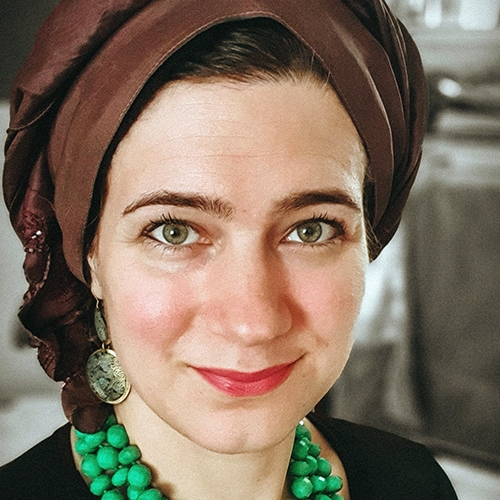

Zainab Yate is a Biomedical Ethicist, with a specialist interest in infant feeding. Zainab is Vice Chair and named qualitative lead on a paediatric flagged Research Ethics Committee Panel for the Health Research Authority (HRA) in the UK, reviewing research protocols for over a decade. Zainab's previous working background is in Public Health and Commissioning the National Health Service (NHS) in the UK. She had also been a volunteer breastfeeding peer supporter with the NHS for a number of years, is the owner-author of the resource site for mothers and healthcare practitioners on Breastfeeding / Nursing Aversion and Agitation and author of "When Breastfeeding Sucks".
Topic: Breastfeeding / Nursing Aversion and Agitation (BAA) in breastfeeding mothers - [View Abstract]
Topic: Research Ethics & Infant Feeding: How to Utilise the Four 'D's of a Brief Assessment - [View Abstract]
Objective 1: What the self-reported symptoms of aversion mothers have and the spectrum of emotions and severity of aversion that is experienced, alongside the symptoms of dysphoric milk ejection reflex. They will also learn the risk factors of experiencing aversion.
Objective 2: The similarities and differences of aversion to the medical conditions of postnatal depression, postpartum mood disorders, and of Dysphoric –Milk Ejection Reflex, as well as Sad Nipple Syndrome as part of a differential diagnosis.
Objective 3: The steps to take to alleviate the negative emotions and intrusive thoughts that can be experienced when breastfeeding.
Breastfeeding can trigger particular negative emotions and intrusive thoughts, these can include experiencing the phenomenon of breastfeeding/nursing aversion and agitation, or having the medical condition of Dysphoric Milk Ejection Reflex. Mothers. These don't preclude having postnatal depression or postnatal mood disorders.
Understanding the nuances and variations in all these conditions and symptoms can lead to better referral, intervention and treatment for those struggling with negative emotions associated with breastfeeding. Being prescribed antidepressants when you have D-MER or Aversion will not always alleviate the symptoms or help the situation.
We cover the literature about when breastfeeding can make someone feel bad, sad or mad, and what we know can help alleviate these negative emotions so as a lactation specialist or health care professional you will become well adept at assessing, referring, signposting, supporting and treating those who struggle. The information and skills you will gain will particularly help in complex cases or cases where there seems to be a missing link.
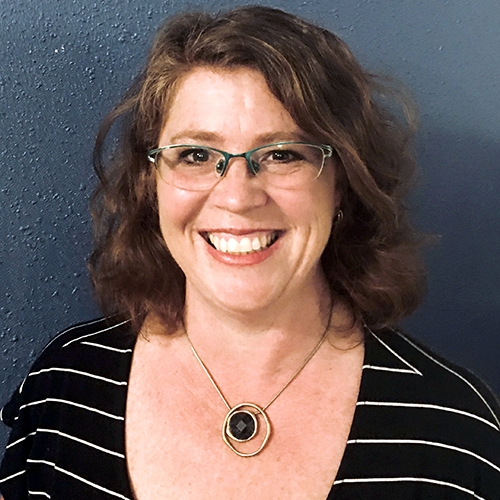

Elizabeth began her career in maternal health in 2000 after earning a Master of Public Health with an emphasis in maternal child nutrition. She accepted a job teaching childbirth education at the University of Utah Hospital and taught for two years before being promoted to the coordinator of that department.
When the hospital decided to begin the journey to become Baby Friendly, Elizabeth was asked to be on that committee and eventually was asked to be the Baby Friendly Coordinator. During this process, it was a natural step for her to earn her IBCLC. Recently Elizabeth was promoted to the manager of the lactation inpatient team in addition to her other responsibilities.
An advocate for maternal health in all areas, Elizabeth serves as the board chair and founding board member for the Mountain West Mothers' Milk Bank. She is the president elect for the International Childbirth Education Association, and the secretary for PSI-Utah. She sits on the University of Utah Perinatal Bereavement Committee, Discharge Quality Committee, and have served on multiple other committees over the years.
She has been married for over thirty years and is the mom of three children. She still has time to pursue other passions such as singing, gardening, exercising, and spending time with her friends and family.
In non-covid times, she can be found on Friday nights calling Bingo for her church and volunteering in other capacities.
Objective 1: Identify the differences between hospice and palliative care.
Objective 2: Describe how breast/chest feeding or human milk feeding can be nutritionally superior and supportive to the family experiencing this situation.
Objective 3: Describe wording to be supportive of families experiencing grief.
In this presentation you will learn about palliative care, hospice, and anticipated death in the early newborn period and why breastfeeding is still important. We will explore the benefits both nutritionally and psychologically for the family experiencing this difficult situation. Using the story of the family who inspired the presenter to explore the options and choices, participants will gain a better understanding of ways to look outside their usual practice to be a support for families. In times of anticipated death and bereavement, it is sometimes difficult to know what to do or say but being open to learning from others and challenging ourselves to be support in different situations, we have an opportunity to help families heal.
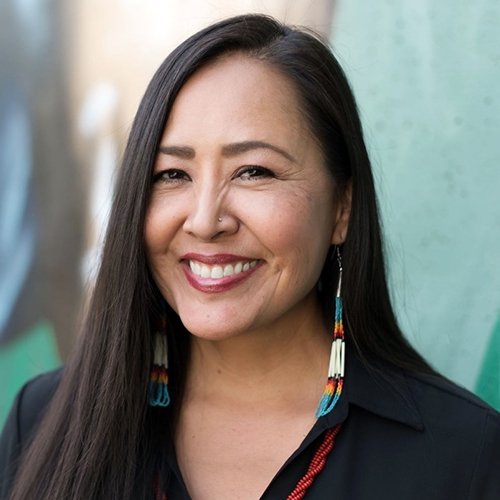

Kim is born for Naakaii Diné (Mexican People) and from Tsi’naajinii (Black Streak People) clans. Born in Tuba City, maternally from Tolani Lake, AZ located in the southwestern area of the Navajo Nation. Growing up on and off the Navajo Nation, and residing in various tribal communities throughout her life, Kim is passionate about utilizing her education and experience to promote healthy living through kinship values.
Kim is a International Board Certified Lactation Consultant and has over 10 years of experience in peer-counseling, clinical and educational lactation. Kim’s work has been inclusive of Tribal and culturally diverse communities serving the needs of prenatal, newborns, and post-partum mothers and families. She is a Co-Instructor for the Indigenous Breastfeeding Counselor training course providing cultural breastfeeding and clinical education to those that can serve their community throughout Turtle Island. She also independently consults with Changing Woman Initiative out of New Mexico, a free access birth center serving Indigenous women to reproductive wellness. She is serving her second term on the United States Breastfeeding Committee Board of Directors. Currently, Kim continues to work at Valley Wise Health Medical Center as a Hospital lactation consultant for eight years and is serving the front lines assisting families and COVID mothers during the pandemic with breastfeeding and hospital policies. She also implemented the first Arizona Lactation Mentorship Pilot Program at Valleywise Hospital mentoring two student interns. This allows access to clinical hours to create strategic initiatives to bring BIPOC diversity, equity and inclusion to the field of lactation.
Currently a member of the Advisory Council Committee for the Navajo Nation Breastfeeding Coalition; she will the Urban Dine’ Community Representative for the Phoenix area. This new role will include breastfeeding home visits and telehealth lactation support serving the urban and telehealth rural BIPOC community. She recently collaborated with Wellness Within Reach also providing breastfeeding education and one on one breastfeeding support. Kim's extensive experience in this field has led to opportunities in consulting, which along with her husband synthesized their consulting business in Tribal Indemnity. Within three years, Tribal Indemnity has assumed responsibility of complex projects and strategic planning with one of the largest Tribes in Arizona. She recently established her own small business, Indigenous Breastfeeding Az, dba.
Kim enjoys spending time with her husband of twenty-three years and three daughters of whom she breastfed until they were 2 years old. She also loves early morning runs, hiking, boxing and yoga.
Objective 1: Discuss the importance of addressing personal trauma through story telling as a lactation support provider.
Objective 2: Describe ways to create safety for parents to share during lactation support as a tool for addressing lactation challenges.
Objective 3: Describe how the affirmation of the mother’s story helps parents breastfeed with less difficulty.
Native people are natural story tellers. This method of knowledge exchange has been around for thousands of years. Story telling is a fundamental tool that has been used to pass down information, share ideas and a teaching opportunity within Indigenous communities. It allows understanding of lived experiences and consequences to sustain and restore balance for many generations. An important component of lactation counseling is we can learn from an Indigenous lens from listening to one’s story when addressing breastfeeding families.
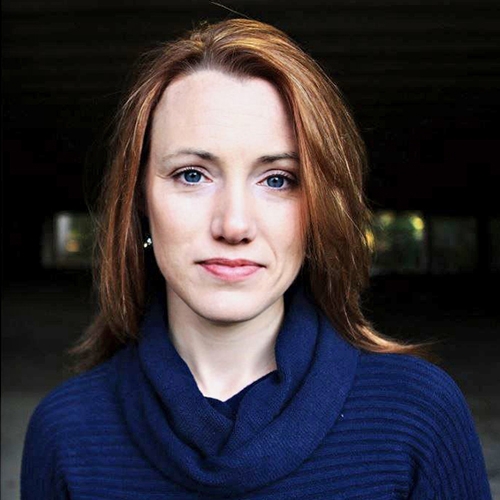

Emily Taylor is nationally recognized for leading hospital transformations to advance health, happiness and equity in communities impacted by structural oppression.
As Founder and Director of WISE (Women-Inspired Systems’ Enrichment), Emily currently leads Perinatal Care Quality Improvement Collaboratives throughout the United States. The collaboratives feature equity and social justice, action-oriented knowledge and skill-building, community engagement, and advanced leadership development.
Emily serves as Chair of the United States Breastfeeding Committee – a coalition of more than 100 organizations that collaboratively drive efforts for policy and practices that create a landscape of breastfeeding support across the United States.
Prior to founding WISE, Emily was Deputy Director of the Carolina Global Breastfeeding Institute. There, she directed the National Collaborative for Advancing the Ten Steps and other collaborative programs. She also conducted myriad research studies resulting in publication on influence of infant formula marketing, implementation of the Baby-Friendly Hospital Initiative, access to donor human milk in the United States, child sexual abuse survivors’ experiences with breastfeeding, and organizational readiness to change.
Emily is currently pursuing her doctorate in Public Health Leadership at the University of North Carolina at Chapel Hill, the same school from which she earned her Master of Public Health from in 2007. She completed the Institute for Healthcare Improvement’s Improvement Advisor Professional Development Program in 2012, and Tamarack Institute’s “Champions for Change: Leading a Backbone Organization for Collective Impact” in 2013.
Her experience as a certified childbirth doula and Lamaze educator and her identity as a woman, feminist, sister, advocate, and equity accomplice continue to inform her work.
Objective 1: Define the scope of child sexual abuse in the US.
Objective 2: Summarize 2+ lessons gleaned from contemporary literature, centering parents’ voices, that explores the relationship between the surviving child sexual abuse and breastfeeding.
Objective 3: Identify 2+ ways to improve current lactation support practices that will enhance parents’ opportunities to gain power, self-possession, softness and inter-generational healing.
One in four girls in the United States report having been sexually abused before their eighteenth birthday. This session will explore how this experience impacts breastfeeding and how lactation supporters can play a positive role in both healing and feeding. A small amount of time will be dedicated to understanding the scope of child sexual abuse in the US. Participants will benefit from hearing lessons gleaned from contemporary peer-reviewed literature that explores the relationship between the surviving child sexual abuse and breastfeeding. The majority of time will be spent hearing from the experts themselves: mothers talking about how their experiences of child sexual abuse impacts their experiences with breastfeeding. Participants will gain insight to the vulnerability and resilience that exists within this large group. The session will end with recommendations for how to provide lactation support that respects and enhances parents’ opportunities to gain power, self-possession, softness and inter-generational healing.
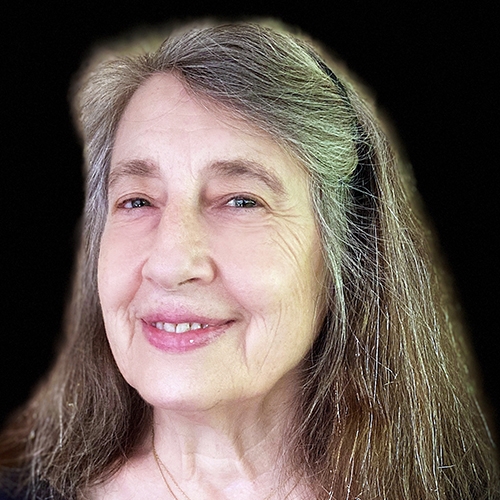

Nikki started as an LPN in 1971, got her RN and BSN, and a graduate degree. She is an author, a teacher, a holistic lactation consultant, a craniosacral therapy practitioner, and a baby body worker (teaching Infant Massage and TummyTime! She is mother to 2 wonderful (breastfed for a long time) daughters, wife to 3 interesting men, only one of whom was the right one for the past 37 years, Rafe!
Her publications include the books, Complementary and Alternative Medicine in Breastfeeding Therapy and A Breastfeeding Owner’s Manual; the monographs, “Benefits of Breastfeeding and Their Economic Impact” and “Sexuality and Breastfeeding” and the educational pamphlet “How to help yourself through labor”. She has been the reviews editor for the journal Clinical Lactation, and has worked as the lactation consultant for the division of Maternal, Child, and Family Health at the Philadelphia Department of Public Health since 2006.
Topic: Words That Work - [View Abstract]
Objective 1: Identify resources and strengths in their own communities.
Objective 2: State barriers to breastfeeding in shelters.
Objective 3: Describe how to implement the 10 Steps to a Breastfeeding Friendly in their own community.
This presentation will describe the 5-year journey to the creation and implementation of the 10 Steps to a Breastfeeding Friendly Shelter, starting with a key person, the prime mover, wondering, as she struggled in her resource-rich home with breastfeeding, "what do mothers experiencing homelessness do when they have trouble breastfeeding?" This question led to the formation of a committee, with the eventual outcome of a published policy paper and the Office of Homeless Services changing its provider contract to include accommodations for breastfeeding.
Accreditation
CERPs - Continuing Education Recognition Points
GOLD Learning is designated as a Long Term Provider of CERPs by the International Board of Lactation Consultant Examiners (IBLCE) -- Approval #CLT114-07. 6 L-CERPs Approved
If you have already participated in this program, you are not eligible to receive additional credits for viewing it again. Please send us an email to [email protected] if you have any questions.
Additional Details
Viewing Time: 4 Weeks
Tags / Categories
(IBCLC) Education and Communication, (IBCLC) Infant, (IBCLC) Psychology, Sociology, and Anthropology, (IBCLC) Public Health and Advocacy, Breastfeeding Advocacy, Breastfeeding Complications, Breastfeeding Support, Hospice & Palliative Care, Inequalities & Breastfeeding, LGBTQIA2S Families & Breastfeeding, Maternal Anatomy & Physiology, Trauma & Breastfeeding
How much time do I have to view the presentations?
- The viewing time will be specified for each product. When you purchase multiple items in your cart, the viewing time becomes CUMULATIVE. Ex. Lecture 1= 2 weeks and Lecture Pack 2 = 4 Weeks, you will have a total of 6 weeks viewing time for ALL the presentations made in that purchase.
- Time for viewing the talks begins once you purchase the product. For Live Webinars & Symposiums, the viewing period begins from when the live event takes place. Presentations can be accessed 24/7 and can be viewed as many times as you like during the viewing period.
What are bundled lectures?
- Presentations may be available individually or via a bundled package. Bundled lectures are a set of lectures that have been put together based on a specific category or topic. Some lectures will be available in both individual and lecture form, whereas others will be available only via a bundled lecture pack.
Will there be Handouts?
- YES! Each lecture comes with a PDF handout provided by the Speaker.
Some lectures include a Q&A, what does that mean?
- During our online conferences, presentations that occur live are also followed by a short 15 minute Question & Answer Session. The Speaker addresses questions that were posted by Delegates during the presentation. We include the recording of these Q&A Sessions as a bonus for you.
How can I receive a Certificate?
- If this presentation offers a certificate, once you are done viewing the lecture or the lectures within a bundle, submit your attendance record in order to be able to download your certificate. You'll be able to see which credits are offered for the lecture by hovering over the "Credits Available" link within the "Speakers & Topics" tab.
Professionals that selected this package also viewed

|
|

|








